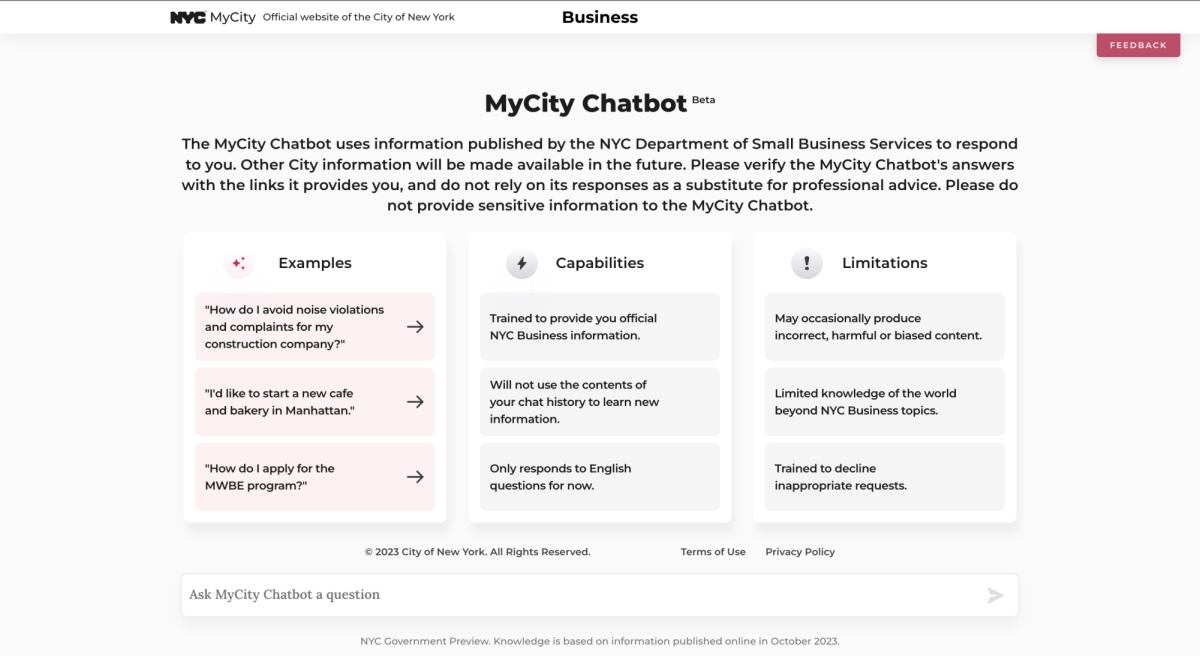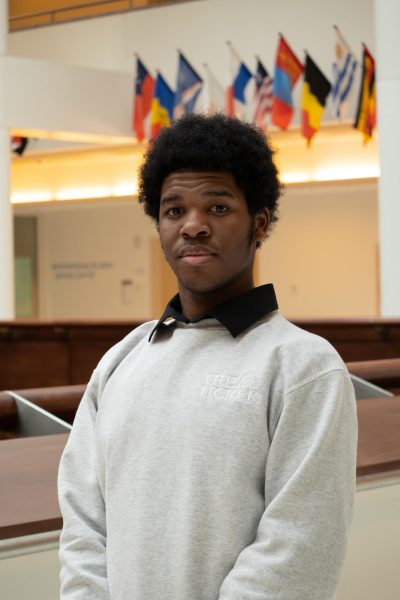In a time marked by unprecedented technological advancement, artificial intelligence has unquestionably revolutionized various aspects of people’s lives. It has found a home in businesses, tech industries and city governments.
In New York City’s government, using AI in business and technology can be beneficial because it is efficient and cost-effective. However, AI should never be relied on in the delicate realm of social services because it poses a significant danger to the principles of fairness and justice, often threatening the perpetuation of racial biases in society.
In October, Mayor Eric Adams released his administration’s comprehensive “New York City Artificial Intelligence Action Plan” that will develop plans for city agencies to implement AI tools.
The initiatives include implementing AI systems into business resources, child welfare services and policing.
Additionally, New York launched the MyCity Business site in March, the first city-wide chatbot. It will help families access childcare services and assist aspiring business owners in starting and growing their businesses.
Entrepreneurs will be able to access information from more than 2,000 NYC Business web pages from a centralized source. The site is a beneficial asset for New Yorkers, especially parents and small business owners, because it removes stubborn barriers to city resources.
The platform will democratize the acquisition of information by allowing people of all income levels to access a large number of resources.
AI algorithms are trained on historical data and will therefore inherit the biases present in that data. In child welfare, data from past investigations may reflect racial disparities in handline child abuse and neglect cases, leading to devasting consequences.
In 11 states, AI algorithms already exist to help caseworkers flag incidents.
The Department of Justice has investigated Pennsylvania for misusing AI risk modeling in the child welfare system. An algorithm used in an Allegheny County study flagged one-third of Black children for review by the child services agency, compared to one-fifth of white children.
The notion that AI can seamlessly replace human judgment in these sensitive contexts is shortsighted and harmful. It is essential to reevaluate and holistically redesign these systems to ensure they are just, equitable and truly beneficial to all.
Furthermore, Adams unveiled the NYPD’s new pilot program for a robot to patrol subway stations was unveiled last month. The first K5 “Robo Cop” is stationed in Times Square and records video that the police can review in case of an emergency.
When asked by a reporter about its cost efficiency, Adams contested that the robot was a sound investment because it costs below minimum wage and doesn’t require meal or bathroom breaks.
Adams’ language is harmful because it is rooted in capitalistic greed, prioritizing profit-driven motives over marginalized communities. The Robo Cop will do nothing to prevent a crime, proving to be a ridiculous gesture and a complete waste of money.
Jordan Neely was brutally murdered by a 24-year-old former marine on the F train in May. This murder is not a singular incident but rather a culmination of Adams’ criminalization of homeless people that broadly characterizes his time in office.
Instead of aiming to add helpful resources to social services that could’ve kept Neely alive, Adams actively works to demonize the homeless population, calling them “cancerous.”
It is ultimately evident that neither AI systems nor the current administration possess the empathy, sociopolitical context or critical thinking skills necessary to make the complex decisions that child welfare and policing demand.
The solution to these dynamic issues lies far outside a subway station, beginning with human care and the election of a new, compliant city government to replace a mayor whose attitude and rhetoric continually jeopardize the lives of the most vulnerable members of society.







